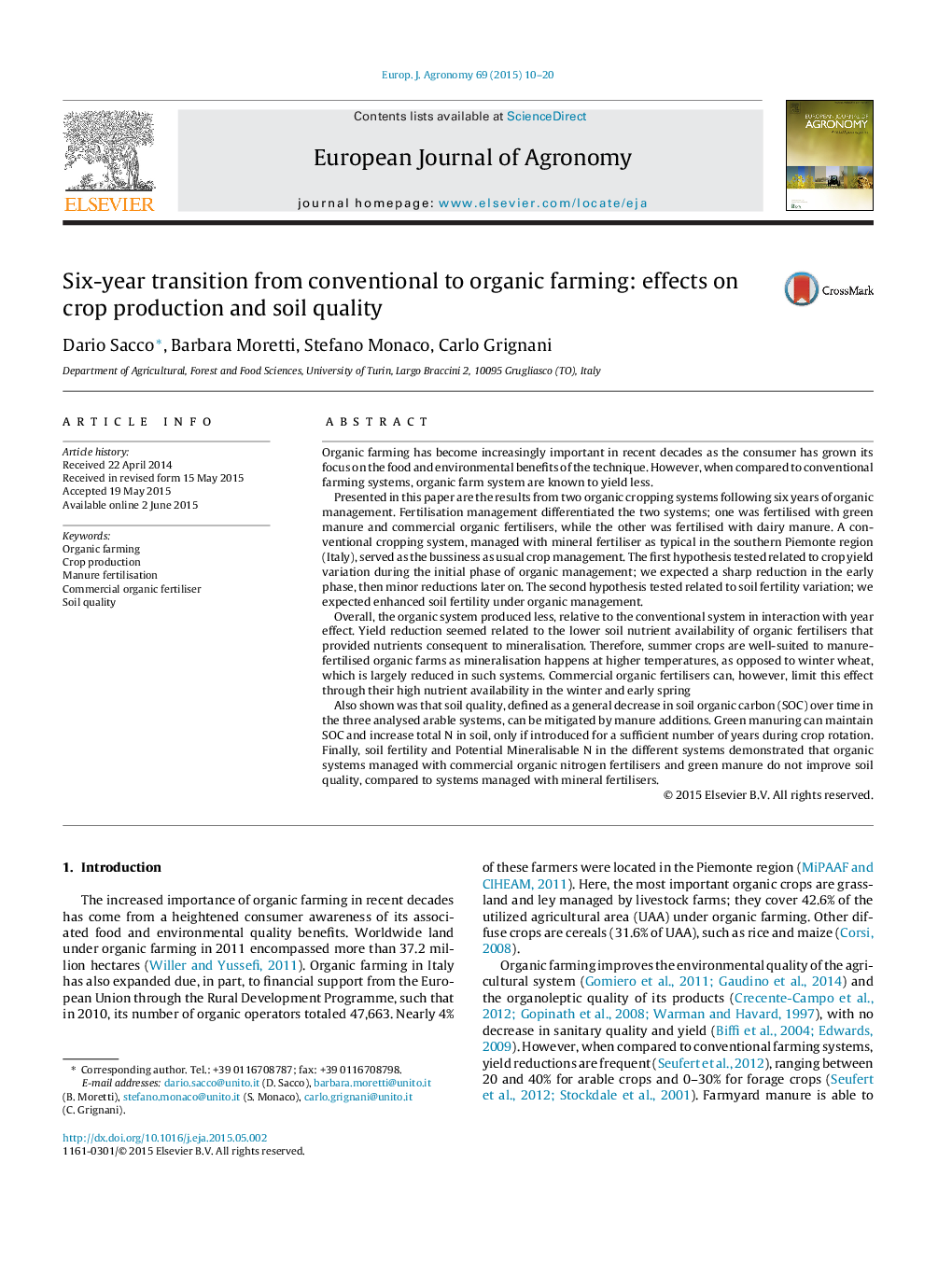| کد مقاله | کد نشریه | سال انتشار | مقاله انگلیسی | نسخه تمام متن |
|---|---|---|---|---|
| 4508818 | 1624456 | 2015 | 11 صفحه PDF | دانلود رایگان |
• Organic systems produce less than do conventional systems.
• No evidence was found of yield trend conversion period to organic management.
• Double-green manuring over three years and manure addition reduced SOC depletion.
• Commercial organic fertilisers with low C/N ratios increased N and P loss risk.
• Winter wheat straw P and K concentrations indicate P and K soil availability.
Organic farming has become increasingly important in recent decades as the consumer has grown its focus on the food and environmental benefits of the technique. However, when compared to conventional farming systems, organic farm system are known to yield less.Presented in this paper are the results from two organic cropping systems following six years of organic management. Fertilisation management differentiated the two systems; one was fertilised with green manure and commercial organic fertilisers, while the other was fertilised with dairy manure. A conventional cropping system, managed with mineral fertiliser as typical in the southern Piemonte region (Italy), served as the bussiness as usual crop management. The first hypothesis tested related to crop yield variation during the initial phase of organic management; we expected a sharp reduction in the early phase, then minor reductions later on. The second hypothesis tested related to soil fertility variation; we expected enhanced soil fertility under organic management.Overall, the organic system produced less, relative to the conventional system in interaction with year effect. Yield reduction seemed related to the lower soil nutrient availability of organic fertilisers that provided nutrients consequent to mineralisation. Therefore, summer crops are well-suited to manure-fertilised organic farms as mineralisation happens at higher temperatures, as opposed to winter wheat, which is largely reduced in such systems. Commercial organic fertilisers can, however, limit this effect through their high nutrient availability in the winter and early springAlso shown was that soil quality, defined as a general decrease in soil organic carbon (SOC) over time in the three analysed arable systems, can be mitigated by manure additions. Green manuring can maintain SOC and increase total N in soil, only if introduced for a sufficient number of years during crop rotation. Finally, soil fertility and Potential Mineralisable N in the different systems demonstrated that organic systems managed with commercial organic nitrogen fertilisers and green manure do not improve soil quality, compared to systems managed with mineral fertilisers.
Journal: European Journal of Agronomy - Volume 69, September 2015, Pages 10–20
